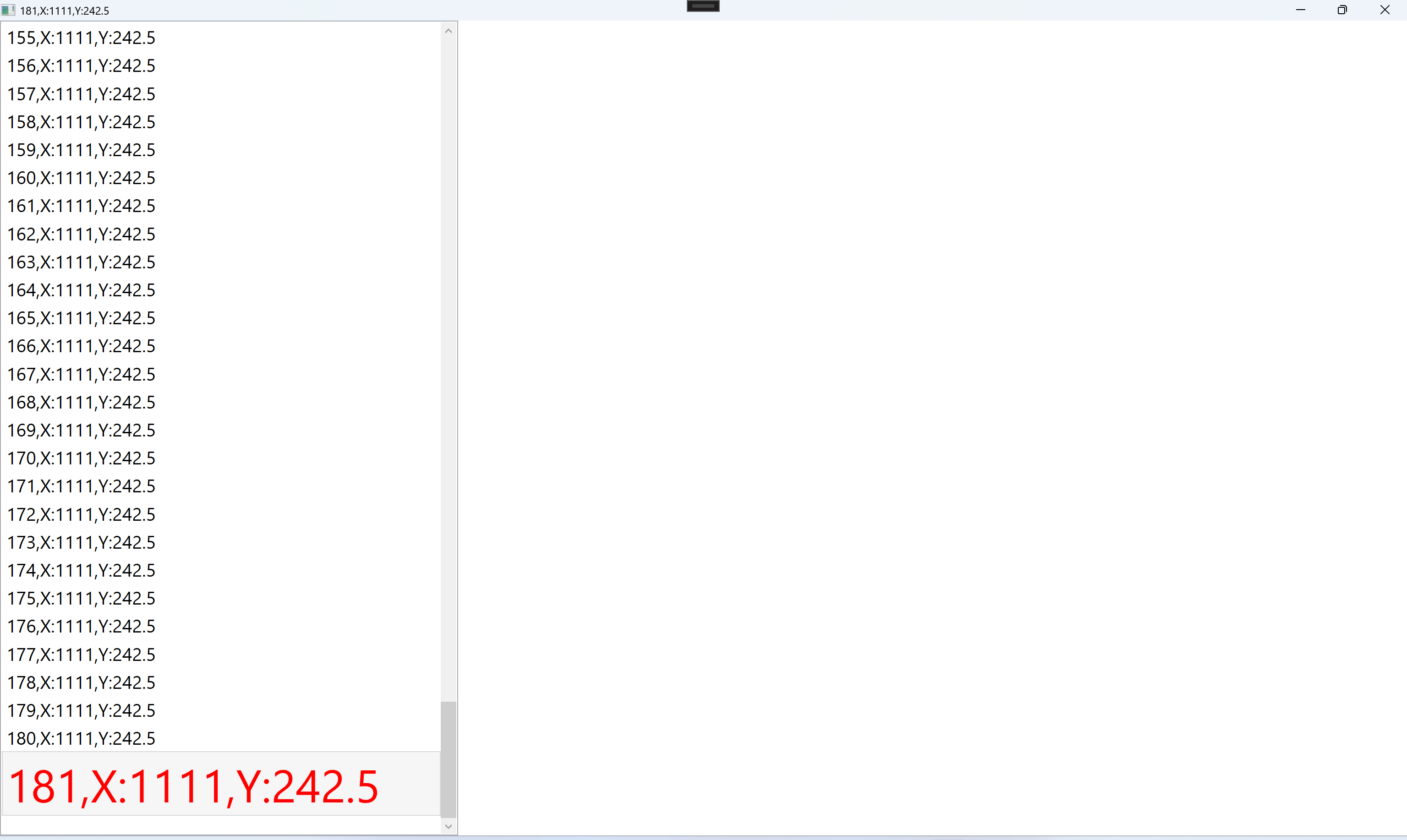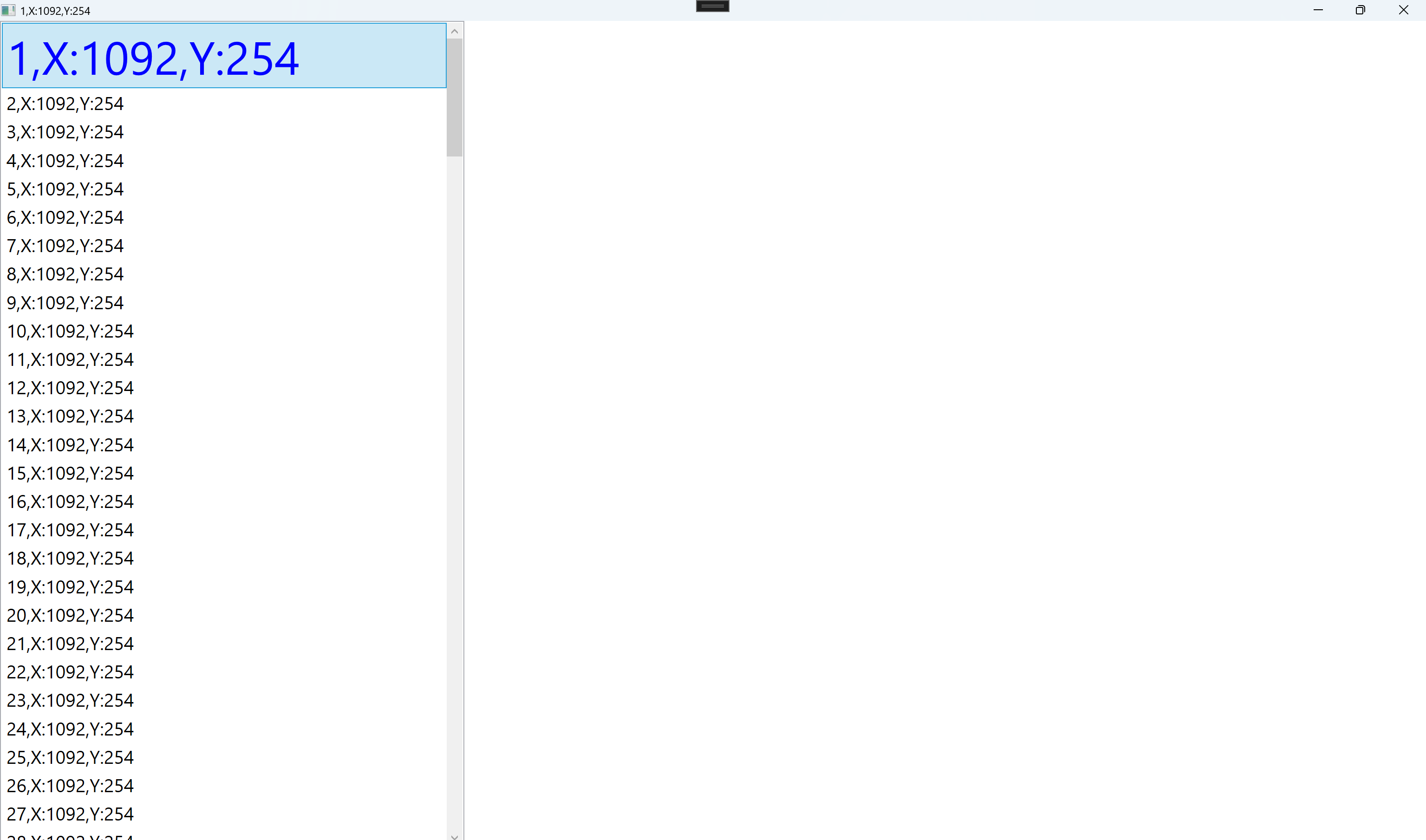public static class MouseBehavior
{
public static readonly DependencyProperty MouseDownCommandProperty =
DependencyProperty.RegisterAttached("MouseDownCommand",
typeof(ICommand),
typeof(MouseBehavior),
new PropertyMetadata(null, OnMouseDownCommandChanged));
public static void SetMouseDownCommand(DependencyObject dObj, ICommand commandValue)
{
dObj.SetValue(MouseDownCommandProperty, commandValue);
}
public static ICommand GetMouseDownCommand(DependencyObject dObj)
{
return (ICommand)dObj.GetValue(MouseDownCommandProperty);
}
private static void OnMouseDownCommandChanged(DependencyObject dObj, DependencyPropertyChangedEventArgs e)
{
if (dObj is UIElement element)
{
if (e.NewValue != null)
{
element.MouseDown += Element_MouseDown;
}
else
{
element.MouseDown -= Element_MouseDown;
}
}
}
private static void Element_MouseDown(object sender, MouseButtonEventArgs e)
{
var element = sender as UIElement;
if (element != null)
{
var command = GetMouseDownCommand(element);
if (command?.CanExecute(e) == true)
{
command.Execute(e);
}
}
}
}
<Window x:Class="WpfApp202.MainWindow"
xmlns="http://schemas.microsoft.com/winfx/2006/xaml/presentation"
xmlns:x="http://schemas.microsoft.com/winfx/2006/xaml"
xmlns:d="http://schemas.microsoft.com/expression/blend/2008"
xmlns:mc="http://schemas.openxmlformats.org/markup-compatibility/2006"
xmlns:local="clr-namespace:WpfApp202"
xmlns:behavior="http://schemas.microsoft.com/xaml/behaviors"
mc:Ignorable="d"
WindowState="Maximized"
Title="MainWindow" Height="450" Width="800"
local:MouseBehavior.MouseDownCommand="{Binding WindowMouseDownCommand}">
<Grid>
</Grid>
</Window>
//vm
public DelCommand WindowMouseDownCommand { get; set; }
WindowMouseDownCommand = new DelCommand(MouseDownCommandExecuted, MouseDownCommandCanExecute);
private bool MouseDownCommandCanExecute(object? obj)
{
return true;
}
private int itemsCount = 0;
private int idx = 0;
private void MouseDownCommandExecuted(object? obj)
{
if (obj != null && obj is MouseEventArgs e)
{
var pos = e.GetPosition(null);
string str = $"{++idx},X:{pos.X},Y:{pos.Y}";
PosStrList.Add(str);
itemsCount = PosStrList.Count;
SelectedItem = PosStrList[itemsCount - 1];
}
}
![]()
![]()
//xaml
<Window x:Class="WpfApp202.MainWindow"
xmlns="http://schemas.microsoft.com/winfx/2006/xaml/presentation"
xmlns:x="http://schemas.microsoft.com/winfx/2006/xaml"
xmlns:d="http://schemas.microsoft.com/expression/blend/2008"
xmlns:mc="http://schemas.openxmlformats.org/markup-compatibility/2006"
xmlns:local="clr-namespace:WpfApp202"
xmlns:behavior="http://schemas.microsoft.com/xaml/behaviors"
mc:Ignorable="d"
WindowState="Maximized"
Title="{Binding SelectedItem,Mode=TwoWay,UpdateSourceTrigger=PropertyChanged}"
Height="450" Width="800"
local:MouseBehavior.MouseDownCommand="{Binding WindowMouseDownCommand}">
<Grid>
<ListBox Width="500"
HorizontalAlignment="Left"
VerticalAlignment="Stretch"
SelectedItem="{Binding SelectedItem,Mode=TwoWay,UpdateSourceTrigger=PropertyChanged}"
ItemsSource="{Binding PosStrList,Mode=TwoWay,UpdateSourceTrigger=PropertyChanged}">
<behavior:Interaction.Triggers>
<behavior:EventTrigger EventName="SelectionChanged">
<behavior:InvokeCommandAction Command="{Binding SelectionChangedCommand}"
CommandParameter="{Binding RelativeSource={RelativeSource Mode=FindAncestor,
AncestorType={x:Type ListBox}}}"/>
</behavior:EventTrigger>
</behavior:Interaction.Triggers>
<ListBox.ItemContainerStyle>
<Style TargetType="{x:Type ListBoxItem}">
<Setter Property="FontSize" Value="20"/>
<Style.Triggers>
<Trigger Property="IsSelected" Value="True">
<Setter Property="FontSize" Value="50"/>
<Setter Property="Foreground" Value="Red"/>
</Trigger>
<Trigger Property="IsMouseOver" Value="True">
<Setter Property="FontSize" Value="50"/>
<Setter Property="Foreground" Value="Blue"/>
</Trigger>
</Style.Triggers>
</Style>
</ListBox.ItemContainerStyle>
</ListBox>
</Grid>
</Window>
//cs
using System.Collections.ObjectModel;
using System.ComponentModel;
using System.Runtime.CompilerServices;
using System.Text;
using System.Windows;
using System.Windows.Controls;
using System.Windows.Data;
using System.Windows.Documents;
using System.Windows.Input;
using System.Windows.Media;
using System.Windows.Media.Imaging;
using System.Windows.Navigation;
using System.Windows.Shapes;
namespace WpfApp202
{
/// <summary>
/// Interaction logic for MainWindow.xaml
/// </summary>
public partial class MainWindow : Window
{
public MainWindow()
{
InitializeComponent();
var vm = new MainVM();
this.DataContext = vm;
}
private void ListBox_SelectionChanged(object sender, SelectionChangedEventArgs e)
{
}
}
public class MainVM : INotifyPropertyChanged
{
public MainVM()
{
PosStrList = new ObservableCollection<string>();
WindowMouseDownCommand = new DelCommand(MouseDownCommandExecuted, MouseDownCommandCanExecute);
SelectionChangedCommand = new DelCommand(SelectionChangedCommandExecuted, SelectionChangedCommandCanExecute);
}
private bool SelectionChangedCommandCanExecute(object? obj)
{
return true;
}
private void SelectionChangedCommandExecuted(object? obj)
{
if(obj!=null)
{
Application.Current?.Dispatcher.BeginInvoke(new Action(() =>
{
var lbx = obj as ListBox;
if (lbx != null)
{
lbx.ScrollIntoView(lbx.Items[itemsCount - 1]);
}
}));
}
}
public DelCommand WindowMouseDownCommand { get; set; }
public DelCommand SelectionChangedCommand { get; set; }
public event PropertyChangedEventHandler? PropertyChanged;
private void OnPropertyChanged([CallerMemberName] string propName = "")
{
var handler = PropertyChanged;
if (handler != null)
{
handler?.Invoke(this, new PropertyChangedEventArgs(propName));
}
}
private string selectedItem;
public string SelectedItem
{
get
{
return selectedItem;
}
set
{
if (value != selectedItem)
{
selectedItem = value;
OnPropertyChanged(nameof(SelectedItem));
}
}
}
private ObservableCollection<string> posStrList;
public ObservableCollection<string> PosStrList
{
get
{
return posStrList;
}
set
{
if (value != posStrList)
{
posStrList = value;
OnPropertyChanged(nameof(PosStrList));
}
}
}
//private ICommand mouseDownCommand;
//public ICommand MouseUpCommand
//{
// get
// {
// if(mouseDownCommand == null)
// {
// mouseDownCommand = new DelCommand(MouseUpCommandExecuted, MouseUpCommandCanExecute);
// }
// return mouseDownCommand;
// }
//}
private bool MouseDownCommandCanExecute(object? obj)
{
return true;
}
private int itemsCount = 0;
private int idx = 0;
private void MouseDownCommandExecuted(object? obj)
{
if (obj != null && obj is MouseEventArgs e)
{
var pos = e.GetPosition(null);
string str = $"{++idx},X:{pos.X},Y:{pos.Y}";
PosStrList.Add(str);
itemsCount = PosStrList.Count;
SelectedItem = PosStrList[itemsCount - 1];
}
}
}
public static class MouseBehavior
{
public static readonly DependencyProperty MouseDownCommandProperty =
DependencyProperty.RegisterAttached("MouseDownCommand",
typeof(ICommand),
typeof(MouseBehavior),
new PropertyMetadata(null, OnMouseDownCommandChanged));
public static void SetMouseDownCommand(DependencyObject dObj, ICommand commandValue)
{
dObj.SetValue(MouseDownCommandProperty, commandValue);
}
public static ICommand GetMouseDownCommand(DependencyObject dObj)
{
return (ICommand)dObj.GetValue(MouseDownCommandProperty);
}
private static void OnMouseDownCommandChanged(DependencyObject dObj, DependencyPropertyChangedEventArgs e)
{
if (dObj is UIElement element)
{
if (e.NewValue != null)
{
element.MouseDown += Element_MouseDown;
}
else
{
element.MouseDown -= Element_MouseDown;
}
}
}
private static void Element_MouseDown(object sender, MouseButtonEventArgs e)
{
var element = sender as UIElement;
if (element != null)
{
var command = GetMouseDownCommand(element);
if (command?.CanExecute(e) == true)
{
command.Execute(e);
}
}
}
}
public class DelCommand : ICommand
{
private Action<object?> execute;
private Predicate<object?> canExecute;
public DelCommand(Action<object?> executeValue, Predicate<object?> canExecuteValue)
{
execute = executeValue;
canExecute = canExecuteValue;
}
public event EventHandler? CanExecuteChanged
{
add
{
CommandManager.RequerySuggested += value;
}
remove
{
CommandManager.RequerySuggested -= value;
}
}
public bool CanExecute(object? parameter)
{
if (canExecute == null)
{
return true;
}
return canExecute(parameter);
}
public void Execute(object? parameter)
{
execute(parameter);
}
}
}






 浙公网安备 33010602011771号
浙公网安备 33010602011771号